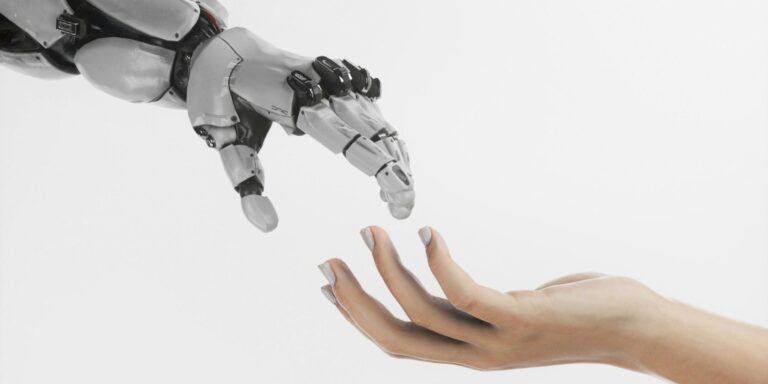In 2025, Artificial Intelligence (AI) has become an increasingly prominent force in the music industry, providing musicians with innovative tools to compose, produce, and mix their work. While AI-driven software has enabled artists to push the boundaries of creativity, it has also sparked important questions about the role of human musicianship in the creative process. As AI continues to evolve, musicians must consider whether it enhances or diminishes the essence of artistic expression. The question remains: will AI revolutionize the way we create music, or will it undermine the human touch that has always been at the heart of musical artistry?
AI technology has been integrated into various stages of music production, offering musicians new possibilities for creative exploration. Programs like OpenAI’s MuseNet and Google’s Magenta project can compose entire pieces of music using algorithms, generating compositions across a wide range of genres. These tools can take input from musicians, transforming their ideas into musical works that might never have been conceived without the assistance of AI. For example, MuseNet can generate music in styles ranging from classical to contemporary pop, allowing artists to experiment with different genres, harmonies, and arrangements. Similarly, AI-assisted programs can assist with the technical aspects of music production, such as mixing and mastering tracks, making the overall process more efficient.
For musicians, the integration of AI into their creative workflows opens up exciting possibilities. AI tools can help break creative blocks by generating new musical ideas that artists can then build upon or tweak according to their vision. Musicians who may not have formal training in composition can now create complex music with ease, allowing them to experiment and explore without the constraints of traditional techniques. AI also enables more seamless collaboration between artists and technology, fostering a dynamic relationship where the musician can guide the process while the AI provides the technical muscle. This has led to an explosion of creativity in music production, with new sounds and styles emerging from the synergy between human musicians and AI.
However, the rise of AI in music creation also raises significant concerns about the future of artistry in the music industry. For many musicians, the creative process is deeply personal and emotional. Music is often an expression of lived experiences, cultural backgrounds, and a complex range of human feelings that an algorithm cannot replicate. While AI can generate melodies, harmonies, and rhythms, it lacks the ability to understand or convey the emotional depth that comes from human experience. Musicians draw from their unique histories, perspectives, and emotions when crafting music, infusing their compositions with a personal touch that resonates with listeners. The question arises: will AI-generated music, by its very nature, be more formulaic and devoid of the raw, emotional energy that characterizes great music?
Moreover, as AI tools become more sophisticated, there is a growing fear that the music industry may prioritize efficiency and commercial viability over artistry and originality. With AI-generated music being able to mimic popular styles and trends, there is the potential for the music industry to become dominated by formulaic productions designed to maximize commercial success, rather than encourage authentic, innovative artistry. Algorithms can identify patterns in music that resonate with listeners, but they do not possess the intuition or originality that human musicians bring to their craft. There is a concern that AI could lead to a future where the music industry becomes more focused on creating hit songs based on data-driven trends rather than fostering genuine creativity and artistic expression.
In 2025, musicians are increasingly faced with the challenge of integrating AI into their work without sacrificing their individuality and artistic integrity. The rise of AI in music creation presents both an opportunity and a challenge. On one hand, AI can support the creative process by providing inspiration, streamlining technical tasks, and allowing artists to experiment in ways that were previously unimaginable. On the other hand, musicians must be cautious not to let AI overshadow the emotional and cultural depth that makes music meaningful. The key will be using AI as a tool to enhance, not replace, the unique qualities that make music a deeply human form of expression.
As AI becomes more ingrained in the music industry, it is important for musicians, producers, and the industry at large to approach the technology with a critical eye. While AI can offer tremendous creative potential, it should not be allowed to strip away the essence of what makes music so powerful—the human element. Musicians must continue to prioritize the emotional core of their work, ensuring that AI remains a tool for creativity, not a substitute for it. The future of music may lie in the integration of AI, but only if it is used in a way that amplifies the human experience rather than diminishes it.
In conclusion, AI’s growing role in music creation presents both opportunities and challenges for musicians in 2025. While AI tools can help artists push the boundaries of creativity and make the production process more efficient, there is a risk that the soul of music could be lost if technology overtakes human creativity. Moving forward, the challenge for musicians will be to embrace AI as a collaborator that enhances their artistic vision while ensuring that the emotion, authenticity, and originality that define great music remain intact. As AI continues to evolve, it will be crucial for musicians to strike a balance between innovation and preservation of the human spirit that makes music so universally powerful.


